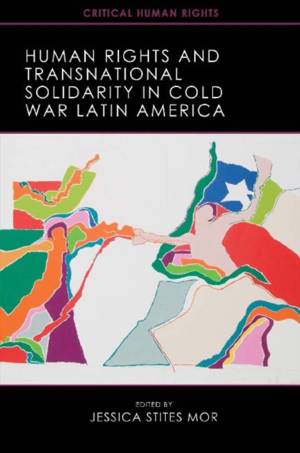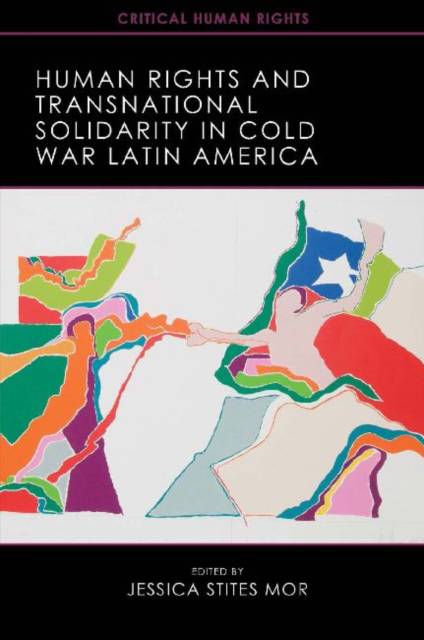
- Afhalen na 1 uur in een winkel met voorraad
- Gratis thuislevering in België vanaf € 30
- Ruim aanbod met 7 miljoen producten
- Afhalen na 1 uur in een winkel met voorraad
- Gratis thuislevering in België vanaf € 30
- Ruim aanbod met 7 miljoen producten
Zoeken
Human Rights and Transnational Solidarity in Cold War Latin America
€ 31,45
+ 62 punten
Omschrijving
With the end of the global Cold War, the struggle for human rights has emerged as one of the most controversial forces of change in Latin America. Many observers seek the foundations of that movement in notions of rights and models of democratic institutions that originated in the global North. Challenging that view, this volume argues that Latin American community organizers, intellectuals, novelists, priests, students, artists, urban pobladores, refugees, migrants, and common people have contributed significantly to new visions of political community and participatory democracy. These local actors built an alternative transnational solidarity from below with significant participation of the socially excluded and activists in the global South.
Edited by Jessica Stites Mor, this book offers fine-grained case studies that show how Latin America's re-emerging Left transformed the struggles against dictatorship and repression of the Cold War into the language of anti-colonialism, socioeconomic rights, and identity.
Edited by Jessica Stites Mor, this book offers fine-grained case studies that show how Latin America's re-emerging Left transformed the struggles against dictatorship and repression of the Cold War into the language of anti-colonialism, socioeconomic rights, and identity.
Specificaties
Betrokkenen
- Uitgeverij:
Inhoud
- Aantal bladzijden:
- 318
- Taal:
- Engels
- Reeks:
Eigenschappen
- Productcode (EAN):
- 9780299291143
- Verschijningsdatum:
- 29/03/2013
- Uitvoering:
- Paperback
- Formaat:
- Trade paperback (VS)
- Afmetingen:
- 152 mm x 226 mm
- Gewicht:
- 430 g

Alleen bij Standaard Boekhandel
+ 62 punten op je klantenkaart van Standaard Boekhandel
Beoordelingen
We publiceren alleen reviews die voldoen aan de voorwaarden voor reviews. Bekijk onze voorwaarden voor reviews.






